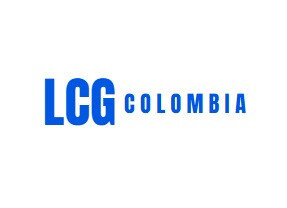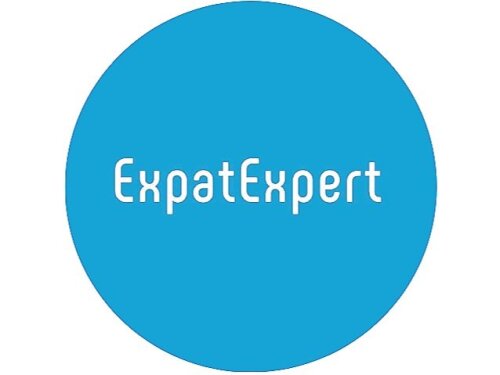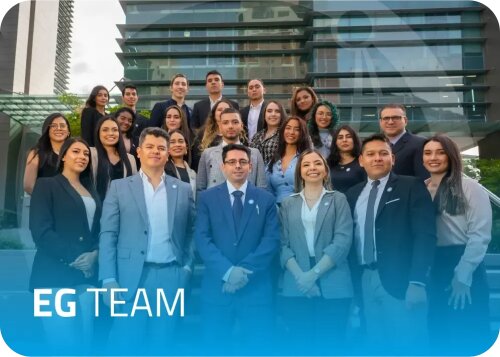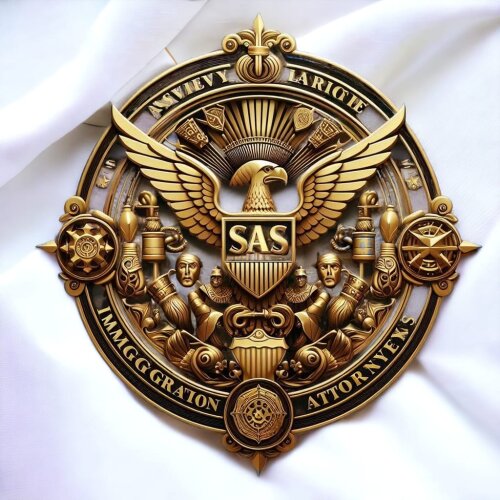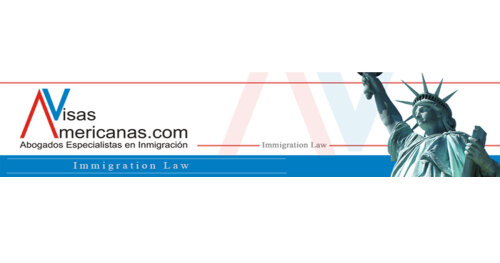Best Citizenship Lawyers in Bogota
Share your needs with us, get contacted by law firms.
Free. Takes 2 min.
List of the best lawyers in Bogota, Colombia
About Citizenship Law in Bogota, Colombia
Citizenship in Bogota, Colombia is governed by Colombian national law, which outlines the ways in which individuals can acquire or lose Colombian nationality. Citizenship status determines your right to vote, work, reside, and enjoy other privileges within the country. For those living in or moving to Bogota, understanding the paths to citizenship as well as your associated rights and responsibilities is crucial. The Colombian Constitution and related statutes provide detailed regulations on citizenship, naturalization, and the documentation required for legal residency and full participation in civic life.
Why You May Need a Lawyer
Navigating citizenship matters in Bogota can be complex, and legal advice is often helpful or necessary. Common situations where people may require legal help include applying for naturalization, resolving issues related to dual citizenship, dealing with lost or incomplete documentation, understanding residency requirements, or facing citizenship revocation proceedings. A qualified lawyer can also help with appeals, ensuring you meet all legal deadlines and requirements. If you have been denied citizenship or face bureaucratic obstacles, a lawyer’s assistance can be invaluable in protecting your rights and guiding you through the process efficiently.
Local Laws Overview
Colombian citizenship is regulated chiefly by the Colombian Constitution of 1991 and Law 43 of 1993, among others. Local laws important for Bogota residents include:
- Citizenship by birth: Anyone born in Colombia with at least one Colombian parent or, when parents’ nationality is unknown or stateless, is considered Colombian by birth.
- Citizenship by naturalization: Those living in Colombia legally for a specified period (usually five years, or less for Latin American and Spanish nationals) may apply for citizenship, provided they meet language and residency requirements.
- Recognition of dual citizenship: Colombia allows its citizens to hold dual or multiple nationalities.
- Loss and restoration of citizenship: Loss may occur voluntarily or if an individual serves in a foreign government or military under certain circumstances, but citizenship can often be reinstated.
- Legal age: You must be at least 18 years old to petition for citizenship yourself.
- Children: Minors can acquire citizenship through their parents.
- Voting rights: Only citizens (not permanent residents) can vote in national elections.
Legal requirements often change, so consulting with a local legal expert is always recommended.
Frequently Asked Questions
What are the main ways to obtain Colombian citizenship in Bogota?
Citizenship can be obtained by birth, by descent from Colombian parents, or by naturalization after legally residing in Colombia for the required period.
How long do I have to reside in Colombia before I can apply for naturalization?
The general rule is five years of legal residence, reduced to one or two years for citizens of Latin American countries and Spain, or for spouses of Colombian nationals.
Can I keep my original nationality when I become a Colombian citizen?
Yes, Colombia allows dual or multiple citizenships.
What documents are required for a citizenship application?
Generally, you need a valid passport, residency permit, proof of income, criminal record certificate, language proficiency proof, and possibly more depending on your specific situation.
What is the process of applying for Colombian citizenship?
Submit your application to the Ministry of Foreign Affairs with all required documents. After review, you may be called for an interview and, if approved, must take an oath of allegiance.
Is there a language requirement for Colombian citizenship?
Yes, unless you are applying as the spouse of a Colombian or you are a minor, showing proficiency in Spanish is required.
What fees are involved in the citizenship process?
Fees vary each year, but you can expect to pay for the application review, certificates, and issuance of a citizenship card.
Can I lose my Colombian citizenship?
Generally, you cannot lose Colombian nationality involuntarily, but you may renounce it or lose political rights temporarily under specific legal circumstances.
Do children automatically become citizens if born in Colombia?
Children born in Colombia to at least one Colombian parent, or to unknown or stateless parents, are citizens by birth. Otherwise, at least one parent must have legal residency.
Where should I file my citizenship application if I live in Bogota?
Applications are usually filed at the Ministry of Foreign Affairs in Bogota or other designated offices within the city.
Additional Resources
Several organizations and official bodies can offer assistance and information:
- Colombian Ministry of Foreign Affairs: Manages applications for naturalization, citizenship rights, and provides official information.
- Defensoría del Pueblo (Ombudsman): Offers guidance and protection of civil rights in Colombia.
- Local municipal offices (Personería): Offer civil assistance and legal guidance on rights and documentation.
- Immigration law firms: Specialize in citizenship processes and can provide bespoke legal advice.
- Human Rights organizations: Help with situations involving statelessness or special protection cases.
It is recommended to use official channels and recognized legal professionals when seeking advice or submitting applications.
Next Steps
If you are considering applying for Colombian citizenship in Bogota or have encountered difficulties with your legal status, gathering all necessary documentation is the first step. Contact a qualified immigration lawyer or consult with the Ministry of Foreign Affairs directly to understand your eligibility and obligations. Scheduling a consultation with a legal expert familiar with Colombian citizenship law ensures your application is complete and increases your chances of success. Always keep records of all communications and submissions. If your situation is urgent or complex, seek legal advice without delay to protect your rights.
Lawzana helps you find the best lawyers and law firms in Bogota through a curated and pre-screened list of qualified legal professionals. Our platform offers rankings and detailed profiles of attorneys and law firms, allowing you to compare based on practice areas, including Citizenship, experience, and client feedback.
Each profile includes a description of the firm's areas of practice, client reviews, team members and partners, year of establishment, spoken languages, office locations, contact information, social media presence, and any published articles or resources. Most firms on our platform speak English and are experienced in both local and international legal matters.
Get a quote from top-rated law firms in Bogota, Colombia — quickly, securely, and without unnecessary hassle.
Disclaimer:
The information provided on this page is for general informational purposes only and does not constitute legal advice. While we strive to ensure the accuracy and relevance of the content, legal information may change over time, and interpretations of the law can vary. You should always consult with a qualified legal professional for advice specific to your situation.
We disclaim all liability for actions taken or not taken based on the content of this page. If you believe any information is incorrect or outdated, please contact us, and we will review and update it where appropriate.



